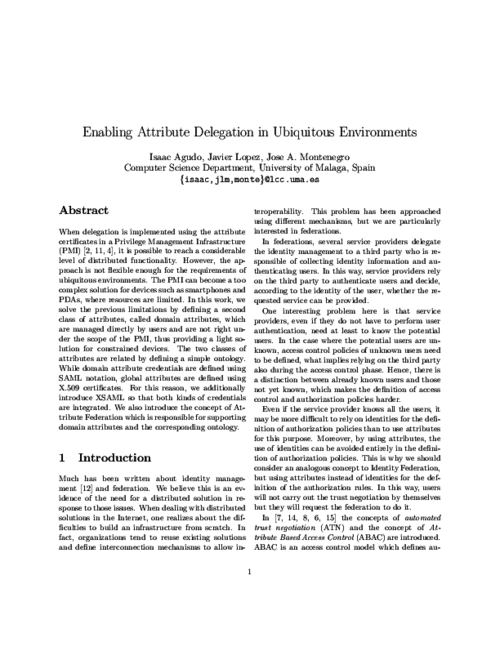 ] Type Year
] Type Year Mobile Networks and Applications, vol. 13, no. 3-4, Springer, pp. 398-410, August, 2008. DOI
Abstract
When delegation is implemented using the attribute certificates in a Privilege Management Infrastructure (PMI), it is possible to reach a considerable level of distributed functionality. However, the approach is not flexible enough for the requirements of ubiquitous environments. The PMI can become a too complex solution for devices such as smartphones and PDAs, where resources are limited. In this work we present an approach to solve the previous limitations by defining a second class of attributes, called domain attributes, which are managed directly by users and are not right under the scope of the PMI, thus providing a light solution for constrained devices. However, we relate the two classes of attributes are related by defining a simple ontology. While domain attribute credentials are defined using SAML notation, global attributes are defined using X.509 certificates. For this reason, we additionally introduce XSAML so that both kinds of credentials are integrated. We also introduce the concept of Attribute Federation which is responsible for supporting domain attributes and the corresponding ontology.
